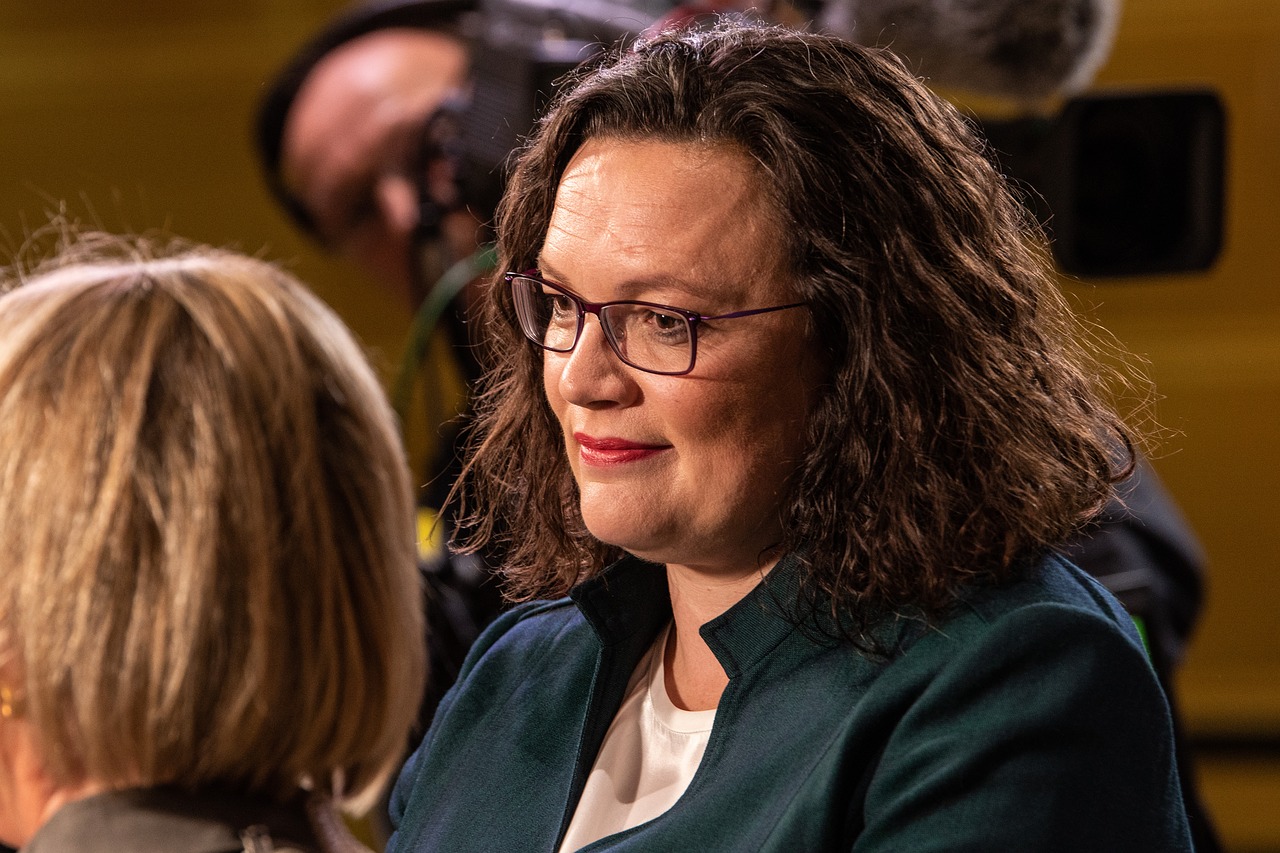
One week after the historic debacle of the SPD in the European elections Andrea Nahles has announced her resignation as party and faction leader. Who follows her, is still unclear – as the transition party leader Malu Dreyer is in conversation. In addition to the future of the party, the governing coalition is also at stake.
„The discussion in the group and the many responses from the party have shown me that the support required to exercise my office is no longer there,“ wrote Nahles on Sunday to all SPD members. Nahles thus assumes responsibility for the poor performance of the SPD in the European elections and the state elections in Bremen.
On Monday, she will therefore explain in the party executive her resignation as SPD leader and on Tuesday in the group her resignation as chairman of the SPD parliamentary group, she also said. By doing so, she wanted to open up the possibility that succession could be regulated in both functions, said Nahles.
Complete withdrawal from politics
According to a group spokeswoman, Nahles also wants to resign from her parliamentary mandate. The date is not fixed yet. The 48-year-old had come under pressure before the board meeting of her party, which on Monday mainly wants to discuss the „strategy ability of the party“. In recent surveys, the SPD came only to twelve percent. This is the lowest value ever measured at the federal level.
„Massive criticism unfair“
On Saturday, Nahles‘ deputy had defended the SPD leader: „The massive public criticism of Andrea Nahles is unfair,“ it said in a joint statement, quoted by the magazine „mirror“. It was „the party of solidarity“, was in the letter, among others, Vice Chancellor Olaf Scholz, the Prime Ministers of Rhineland-Palatinate and Mecklenburg-Western Pomerania, Malu Dreyer and Manuela Schwesig to read.
It continued: „After the devastating election results, we must speak openly and critically, but respectfully, about what we need to change together to find a way out of the crisis.“ Nahles presided over „a very difficult period“ taken over by the party. Nahles had become party leader just over a year ago – in April 2018. She has chaired the group since September 2017.
Scholz regrets resignation
Vice Chancellor Scholz regretted Nahles‘ resignation. „The country and the SPD have much to thank Andrea Nahles,“ said the Minister of Finance. In difficult times she took responsibility and started the process of renewal in the party. „The SPD is not only in a difficult position since the European elections – it is therefore important that we stay together and take the next steps together,“ said the deputy SPD chairman. Scholz did not comment on his possible ambitions as a possible successor to Nahles.
„Now there can be no quick shots“
Meanwhile, Deputy SPD Chairman Ralf Stegner warned against gunfire. „The decision (…) deserves the utmost respect, especially when you know with what passion she has repeatedly assumed responsibility for her party,“ said Stegner dpa in Berlin.
„The handling style within the SPD in the last days and weeks was not at all influenced by the social democratic basic value of the solidarity“, so Stegner. „If we want to gain new confidence and overcome this serious crisis, that has to change fundamentally,“ he warned. „In addition, there must be no snap shots or actions from the first-person perspective,“ says Stegner.
Dreyer as provisional party leader in conversation
After the Nahles resignation announcement, the Rhineland-Palatinate Prime Minister Dreyer is in transition as a transitional party leader. This will advise the closer party leadership in Berlin, told the news agency Reuters.
The business of the group leader would take over the longest-serving parliamentary group vice, Rolf Mützenich, provided that on Tuesday in the group meeting no new election takes place.
The SPD had reached only 15.8 percent of the votes in the European elections a week ago – that was their worst result so far in a nationwide vote. She also landed for the first time as the third strongest force behind the Greens. At the same time it was not the strongest force in the state election in Bremen for the first time since the Second World War.



